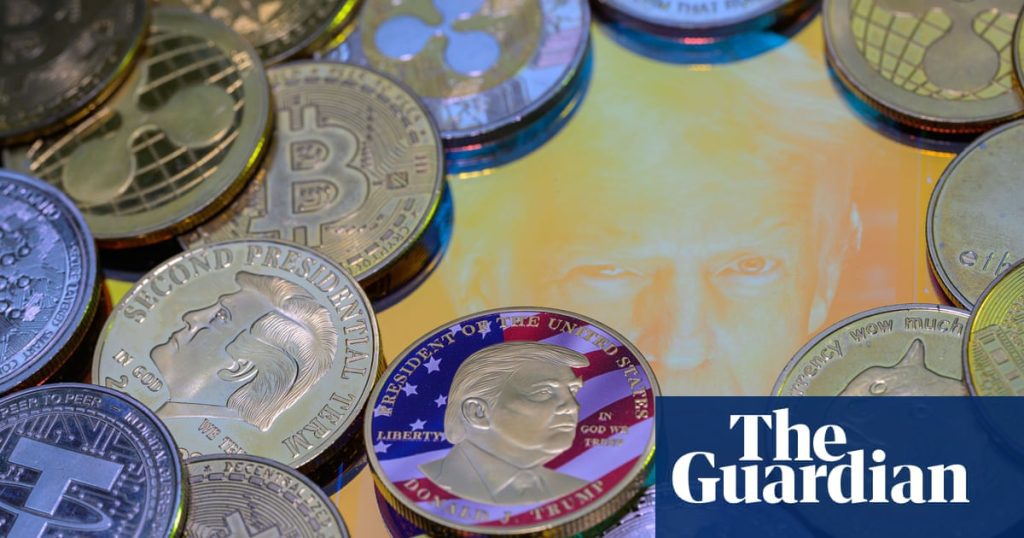The 220 winners of a cryptocurrency contest were informed on Monday to keep an eye out for an email containing “the most exclusive invitation in the world.” As a reward for their significant financial outlays—sometimes amounting to millions—they won the opportunity to attend a private gala with Donald Trump at his Washington DC golf club later this month.
This arrangement, where access to the president is granted in exchange for investment in his cryptocurrency venture, adds another layer to Trump’s long history of conflicts of interest. From real estate ventures and media companies to merchandising deals, fraud allegations, and recently a $400 million gift of a plane from Qatar, Trump’s career has been riddled with entanglements that have raised alarms from government ethics monitors for years.
The Crypto Conflict
Trump’s entry into the cryptocurrency sector is a significant escalation of these conflicts. He is using his presidential power for personal benefit, which could expose him to foreign influences while navigating an industry he is poised to deregulate. This scenario merges Trump’s questionable business practices with a sector known for its scams and lack of transparency, potentially turning it into the most profitable undertaking he has ever engaged in.
Concerns Over Influence
Trump’s transition from a cryptocurrency skeptic to an industry participant has raised red flags for ethics advocates, who worry he may push through crypto-friendly legislation that benefits his financial interests if re-elected. This contest for direct access to the president through cryptocurrency investments raises alarms about political corruption and influence-peddling, particularly due to the anonymity surrounding the winners.
The contest’s rules specified that the top 220 purchasers of the $TRUMP coin, showcased on a public leaderboard, would receive an invitation to dine with Trump. The top 20 participants would get additional access via a VIP reception. However, the leaderboard only showed usernames and wallet codes, keeping the actual identities of the winners unclear. Contestants could also choose any name for the invitation, adding to the uncertainty over actual attendance.
Foreign Involvement
One major concern among Democrats and ethics organizations is that this contest might enable foreign individuals to gain influence over Trump through their investments. Analysis of the $TRUMP leaderboard has revealed that many of the top purchasers used foreign exchanges that restrict US users, indicating a significant presence of non-American investors among the winners. The leading buyer, with over $18 million in $TRUMP coins, is tied to Justin Sun, a Hong Kong crypto entrepreneur charged with fraud by the SEC.
The Trump family’s recent plunge into cryptocurrency represents a striking shift from their previous focus on real estate. Since last year, the Trumps have seriously engaged with the crypto world, becoming the first presidential candidate to accept crypto donations and aiming to position the US as the “crypto capital of the planet.” Their crypto enterprises have since expanded to include various coin offerings and funds, revealing a complicated web of ownership that allows Trump to benefit financially while previously condemning cryptocurrencies.



